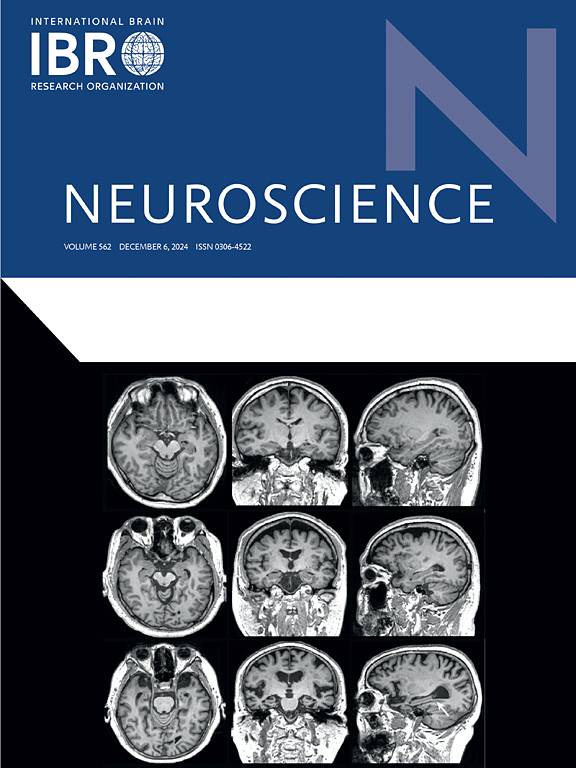亚精胺减轻血管性痴呆大鼠模型中的小胶质细胞激活、神经炎症和神经元损伤
IF 2.9
3区 医学
Q2 NEUROSCIENCES
引用次数: 0
摘要
亚精胺对几种模式生物的认知功能以及患有轻度和中度痴呆的老年人都有有益的影响。然而,亚精胺对血管性痴呆(VaD)的学习和记忆缺陷的潜在影响在很大程度上仍然未知。本研究采用双侧颈总动脉闭塞术(BCCAo)诱导大鼠慢性脑灌注不足。我们证明亚精胺治疗改善了模型动物的空间学习表现,同时减少了脑组织病理学损伤,增加了恢复的髓鞘碱性蛋白(MBP)的表达。亚精胺还能抑制异常小胶质细胞的活化,抑制肿瘤坏死因子(TNF)α和诱导型一氧化氮合酶(iNOS)等促炎介质的过量产生,提高低灌注后鼠脑抗炎细胞因子转化生长因子(TGF)β的表达。我们的研究结果表明,亚精胺可能通过抑制小胶质细胞调节的神经炎症和神经元损伤来减轻vad样损伤后大鼠的认知障碍。这些数据可能有助于了解VaD的发病机制,并指出补充亚精胺对改善认知的有希望的价值。本文章由计算机程序翻译,如有差异,请以英文原文为准。
Spermidine attenuates microglial activation, neuroinflammation, and neuronal injury in rat model of vascular dementia
Spermidine has been implicated to provide beneficial effects on cognitive function in several model organisms as well as older adults with mild and moderate dementia. Nevertheless, the potential impact of spermidine on learning and memory deficits in vascular dementia (VaD) remains largely unknown. Here, bilateral common carotid artery occlusion (BCCAo) was applied to induce chronic cerebral hypoperfusion in rats. We demonstrated that spermidine therapy improved the spatial learning performance in model animals, accompanied with decreased cerebral histopathologic injury and increased restored myelin basic protein (MBP) expression. Moreover, spermidine suppressed abnormal microglia activation, inhibited the excessive generation of proinflammatory mediators, such as tumor necrosis factor (TNF)α and inducible nitric oxide synthase (iNOS), and increased the anti-inflammatory cytokine transforming growth factor (TGF)β expression in rodent brain following hypoperfusion. Our findings indicated that spermidine alleviated cognitive impairments of rats after VaD-like injury possibly via suppressing microglia-modulated neuroinflammation and neuronal injury. These data may shed light on understanding the pathogenesis of VaD and point to the promising value of spermidine supplementation for cognition improvement.
求助全文
通过发布文献求助,成功后即可免费获取论文全文。
去求助
来源期刊

Neuroscience
医学-神经科学
CiteScore
6.20
自引率
0.00%
发文量
394
审稿时长
52 days
期刊介绍:
Neuroscience publishes papers describing the results of original research on any aspect of the scientific study of the nervous system. Any paper, however short, will be considered for publication provided that it reports significant, new and carefully confirmed findings with full experimental details.
 求助内容:
求助内容: 应助结果提醒方式:
应助结果提醒方式:


